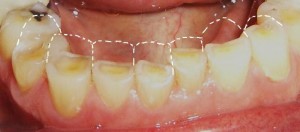Dealing with Bruxism
What is bruxism?
Bruxism is a common complaint which affects about a third of the population at any one time. It is where a person clenches their teeth or grinds them together, and is an action that can happen quite subconsciously and often takes place at night. It’s quite often a reaction to chronic stress or high-pressure situations and is more commonly found in women. It can effect a certain type of person who reacts negatively to stress with pain, anger and frustration, and often happens as a result of poor stress management. Bruxists often exhibit other symptoms such as nail biting, during the tops of pencils or pens, their lips or the insides of their cheeks. It’s a very harmful condition as it destroys the biting surfaces of teeth which can cause bite imbalances which then leads to all sorts of other serious dental problems.
What are the symptoms of teeth grinding?
Since bruxism commonly occurs when people are asleep they can be completely unaware of the problem but may awaken with an aching jaw, tooth sensitivity and gum sensitivity. Patients with this problem often have fractured and chipped teeth which may be heavily worn down. As the teeth wear down this causes them to become more sensitive as it exposes the interior of the tooth which is called the dentin. It also creates problems with the bite which affects the temporomandibular joint. This is the joint where the upper and lower jaws meet. If this joint is stressed then it can cause problems such as tense muscles in the area, headaches and neck pain. Someone suffering from bruxism may also notice that their jaw makes strange popping or clicking sounds when they open and shut their mouth. Thankfully your dentist office in Houston will be able to book an appointment for you to be thoroughly assessed so that a treatment plan can be worked out.
How can it be treated?
One method of treating bruxism is to use a device called an NTI-tss which is a small acrylic mouthpiece that works very simply by interrupting the action of the muscles in the jaw which reduces the clenching intensity by one third. It fits over the front teeth and works by creating exclusive contact between the incisors, so that the canines, or eye teeth, and the molars cannot come into contact.
It enables the muscles to relax in a stable position so that they can rest. Using this device can help to eliminate symptoms such as headaches within just a few short days. The device is created chair side and is quite unobtrusive and easy to wear. Your dentist in Houston Texas will be able to give you more information, and will tell you if this treatment is suitable for your problem. Alternative treatments include the use of night guards or mouth guards which can stop the muscles from clenching, and also relaxation techniques such as biofeedback or behavior modification therapy, or even hypnosis. These techniques can work especially well for individuals who are under a lot of stress as the correlation with bruxism has been well documented. It may even be worth sufferers trying a combination of techniques and treatments to resolve the problem.

